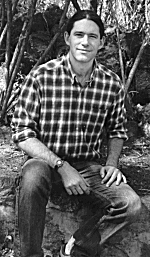It would seem that my speculations earlier are coming to fruition. Two recent emails from government officials would suggest that the writing is on the wall.
From April 16, 2009 email:
Over the last three weeks, several changes have been made to the overall Forest Investment Account funding. This has not impacted the FIA-FSP budget ($8M for 2009/10), but has meant that the MFR was reluctant to release any information on program budgets until completion of the budget process. The process is now finalized and the land-base investment program, which has the majority of FIA funds, has sent out allocation information to licensees this week. The FIA-FSP will follow next week with letters out to proponents of new submissions indicating funding will only be available for the pre-2009/10 ongoing projects. Letters to proponents with ongoing projects will be sent out by the end of the month.
From April 17, 2009 email:
In previous years at this time the PACs and FNAG would be planning the priority setting process for the next Call for proposals. However, the FIA-FSP budget has been significantly reduced to $8M for 2009/10 (2008/09 budget was $14M) which has an impact on the program governance model and funding for research and extension work.
At the last FSP Board meeting, Melanie Boyce the MFR Executive sponsor for the program outlined some initial changes to the program as a result of the reduced budget. The Forest Science Board will be reduced in size and the new “Steering Committee” will report directly to the Chief Forester. The role of the working groups will be transferred to the steering committee members and the priority setting process reviewed. Work done to date, such as the revised strategies and draft strategic plans, will be considered in any future strategies. The previous work done by the PACs and FNAG will assist with the next Call for proposals resulting in minimal work by these committees during the 2009/10 transition year.
This year will be challenging as we transition to a reduced program level. I recognize the important part the PACs and FNAG have had in providing technical direction and priorities to the Program over the past 5 years and hope you will support us during the transition period. Once the new steering committee is formed in late April we will be in a better position to provide more details on transition. For the research projects, we will be sending out letters to proponents next week for those who submitted new proposals to the 2009/10 Call, and letters for ongoing projects by the end of the month.
Taken together the above emails plus other pieces of information suggest a massive centralization of control within the ministry and a reduction of independent research. This is happening just as the process of including First Nations and social science research into the forestry research programs was starting to improve.

